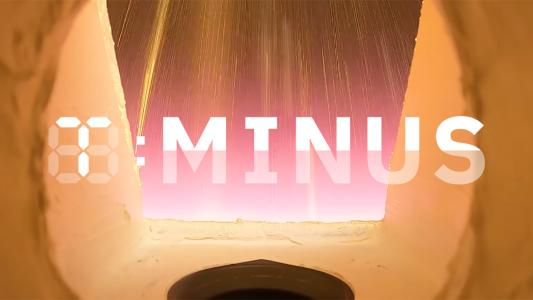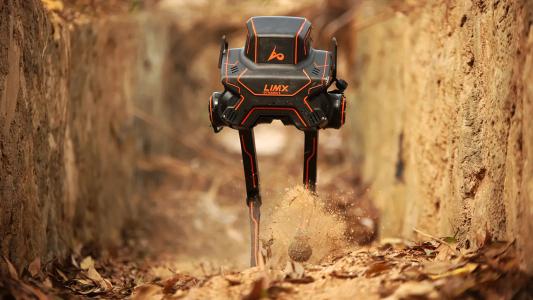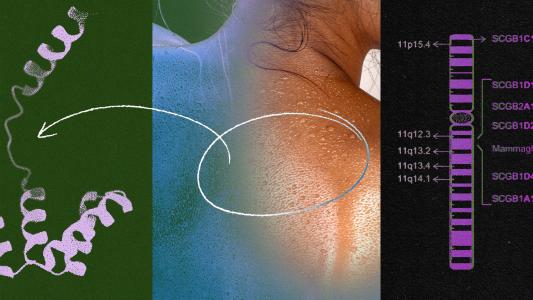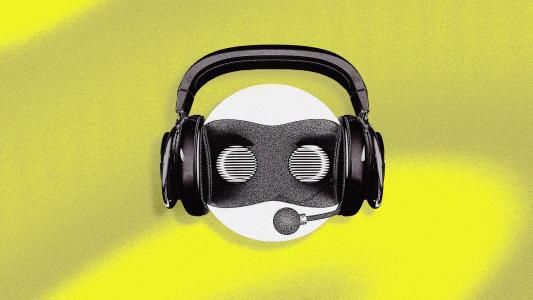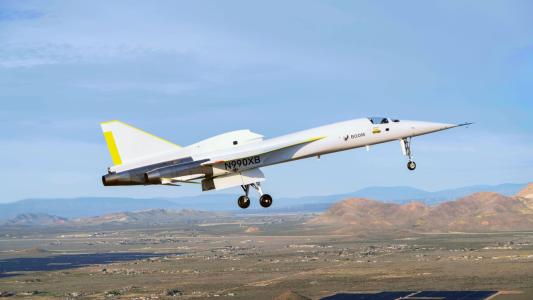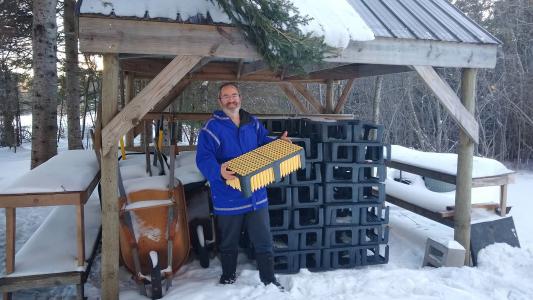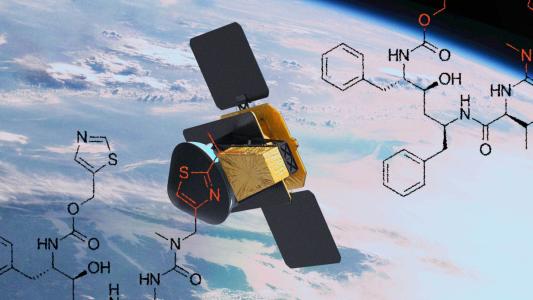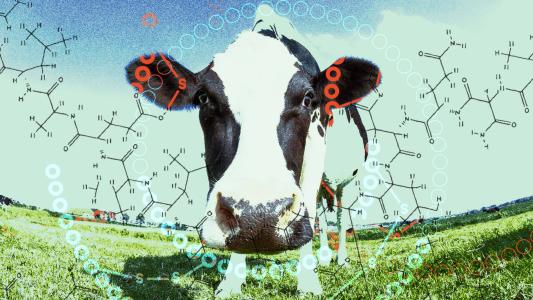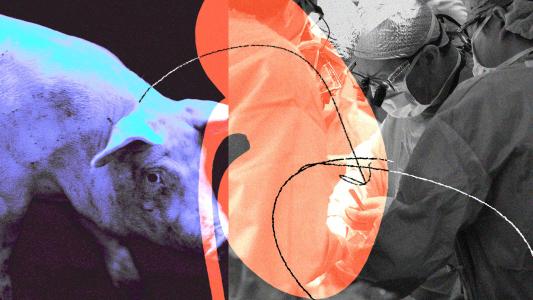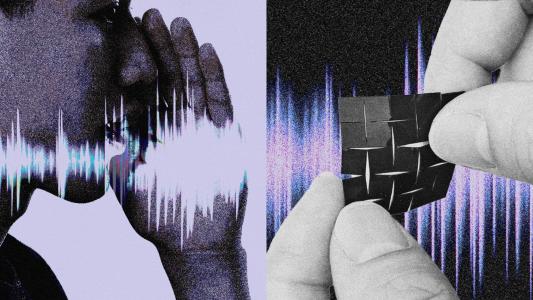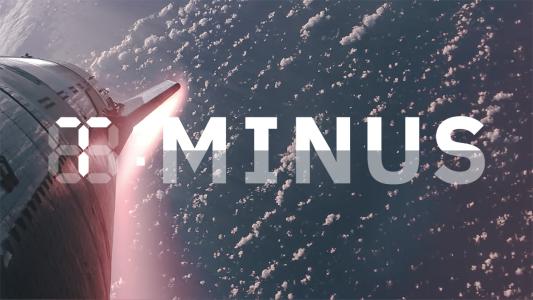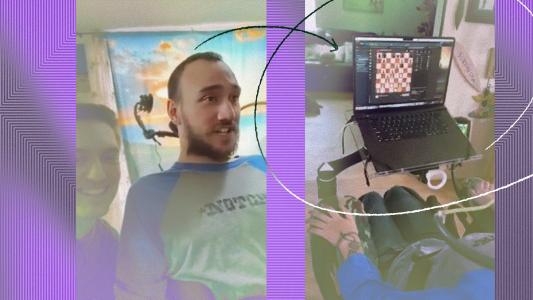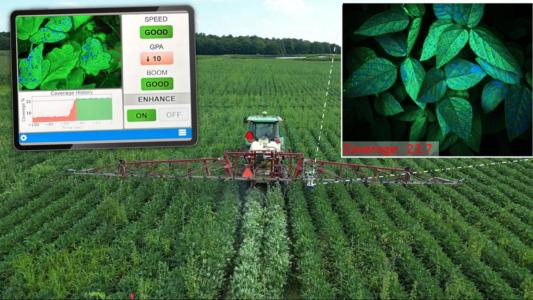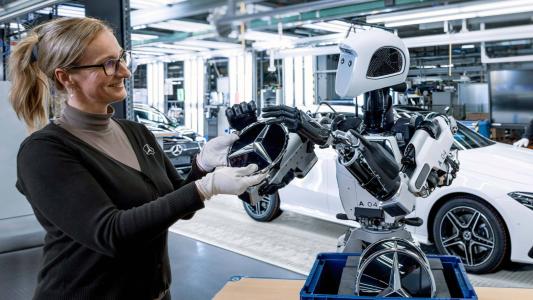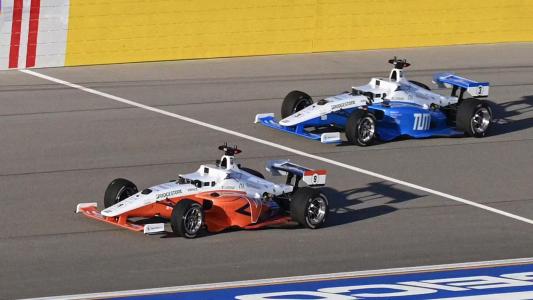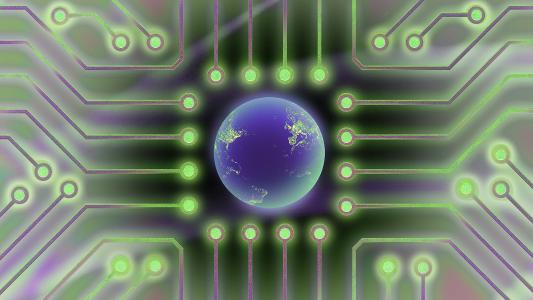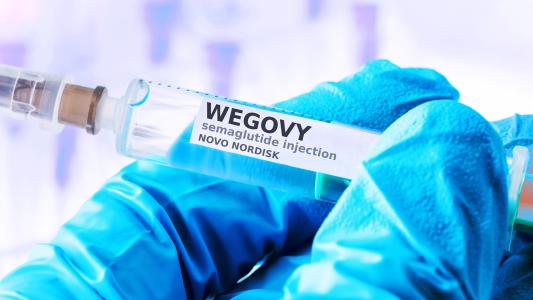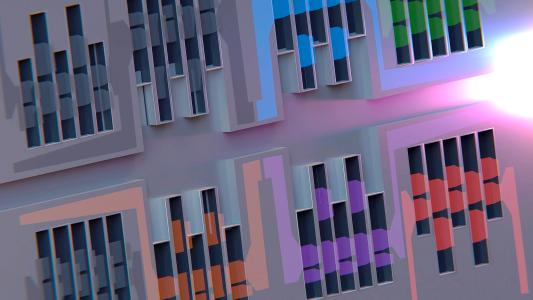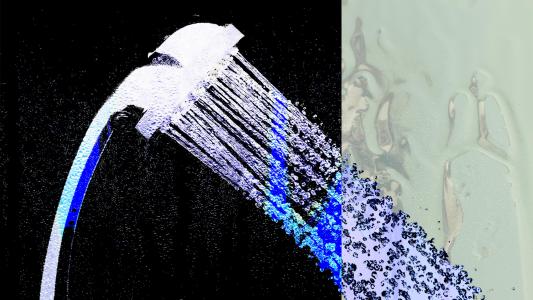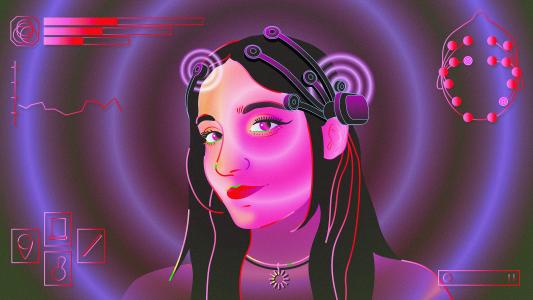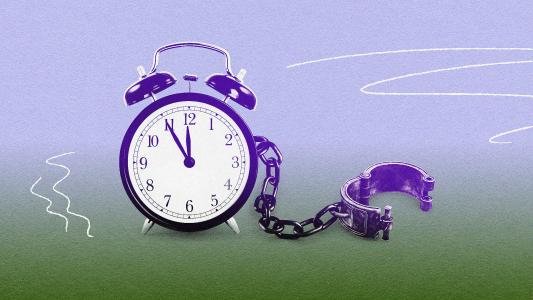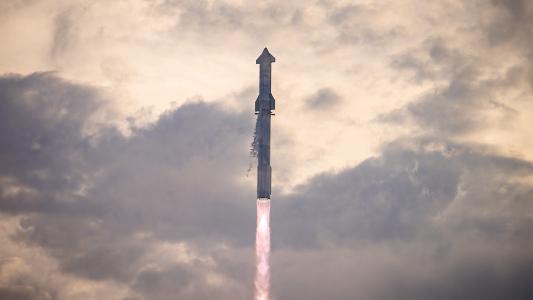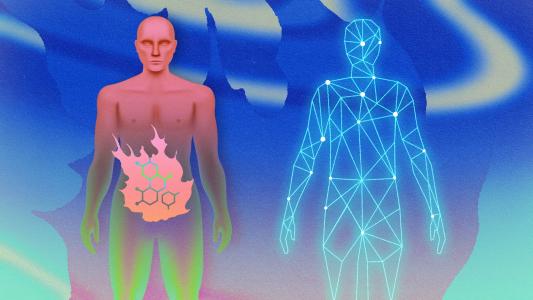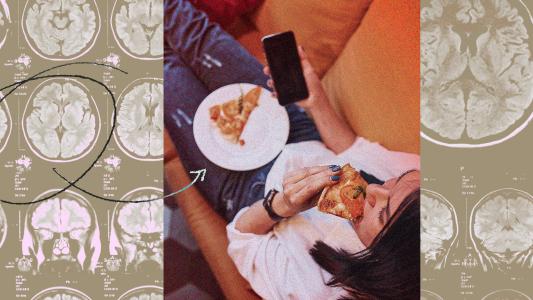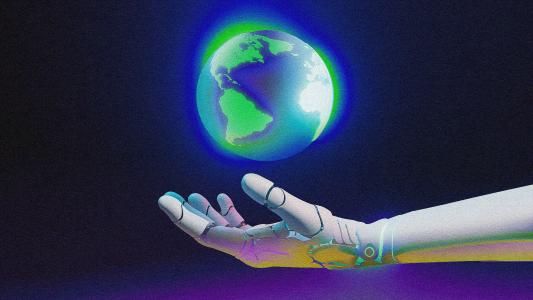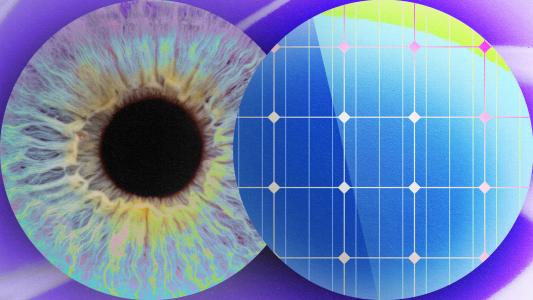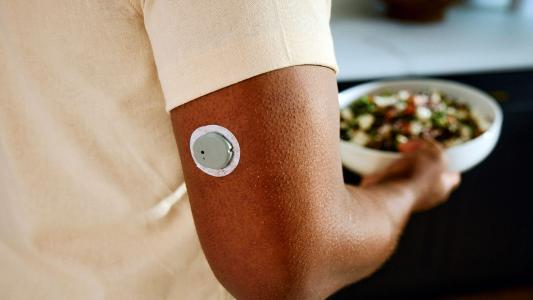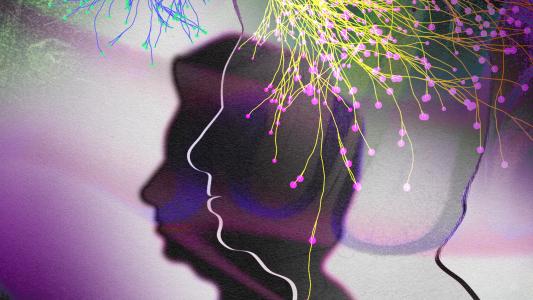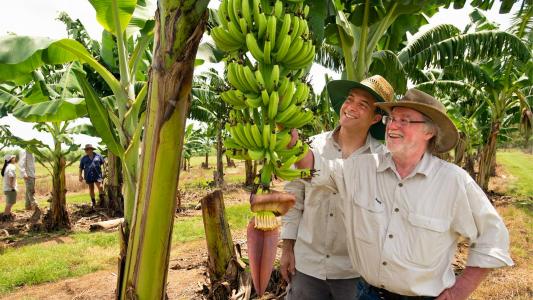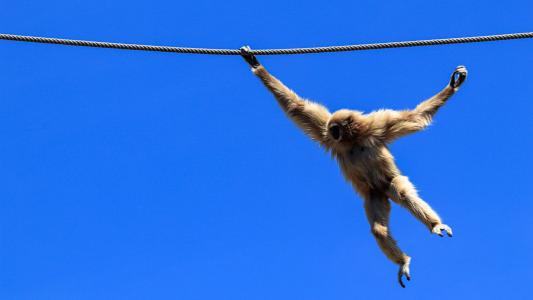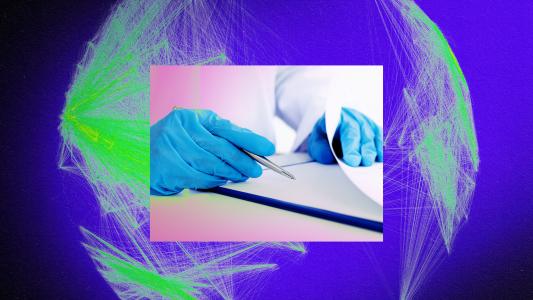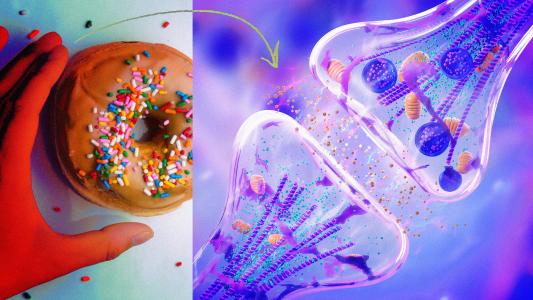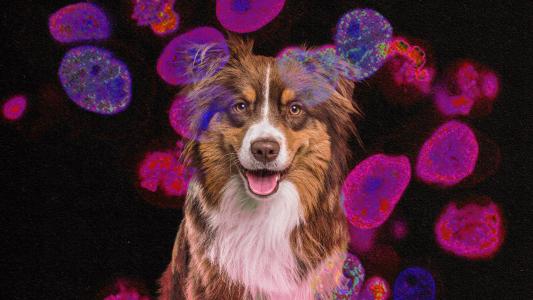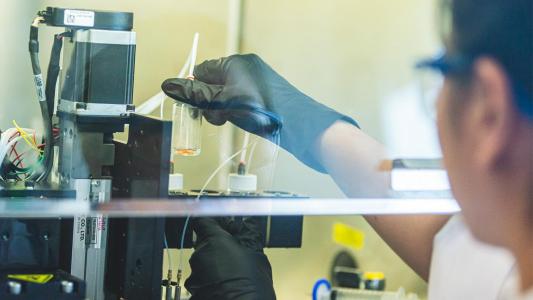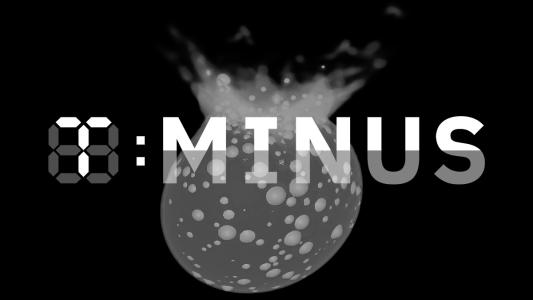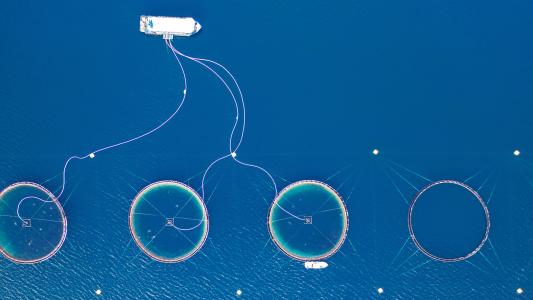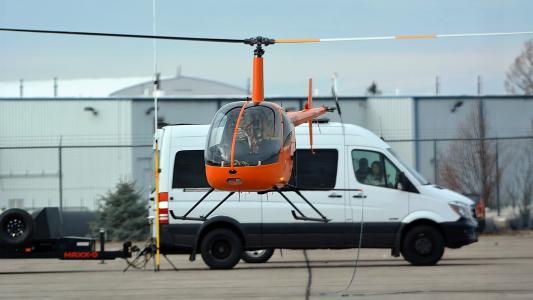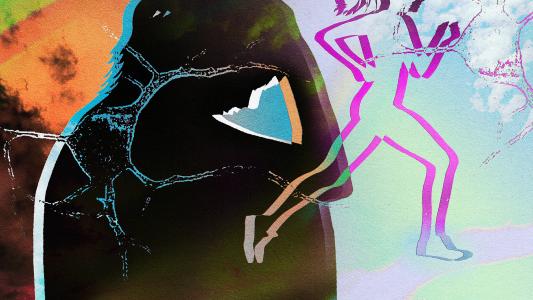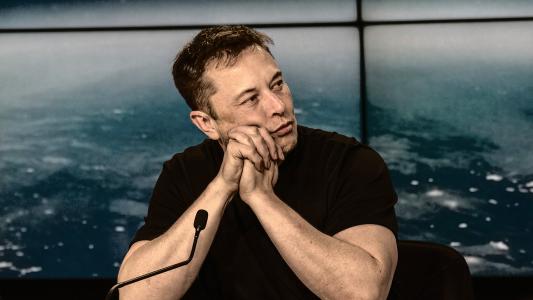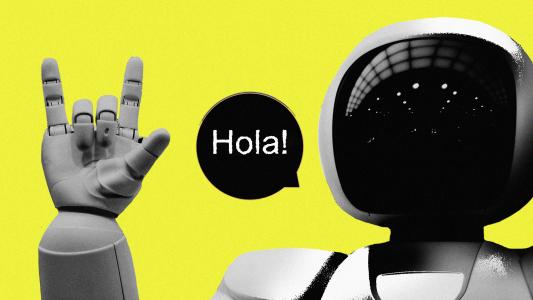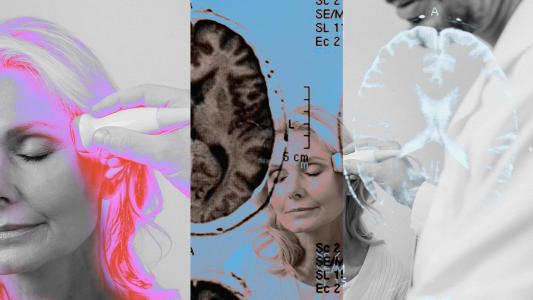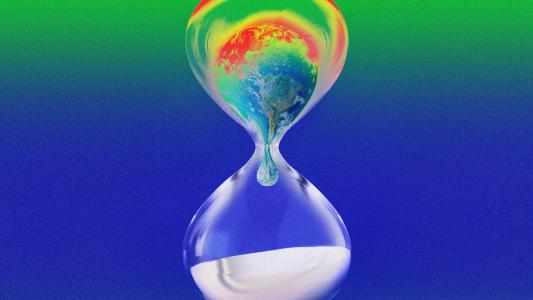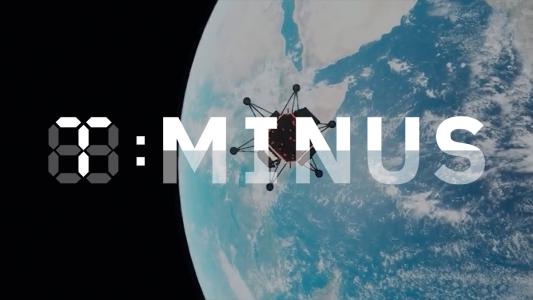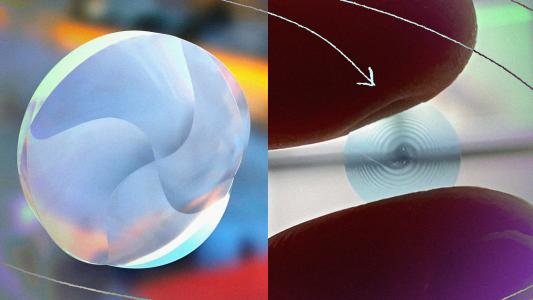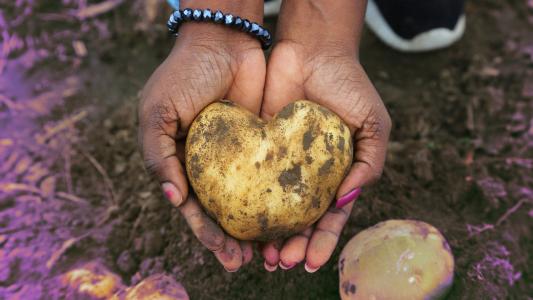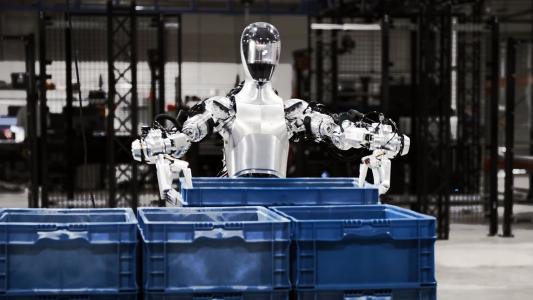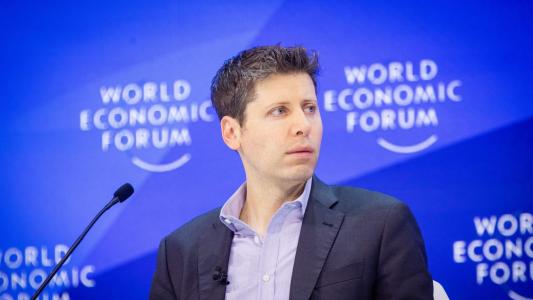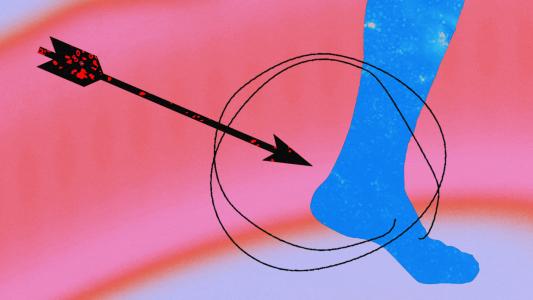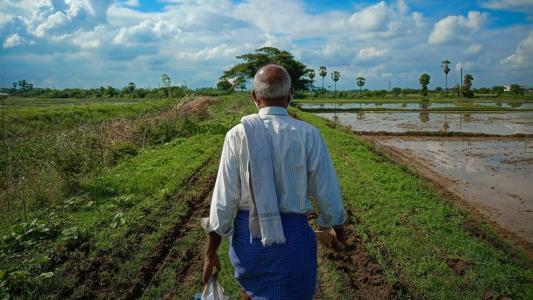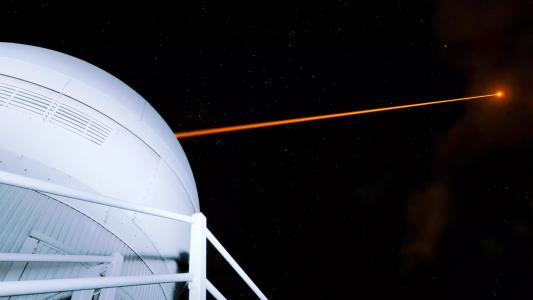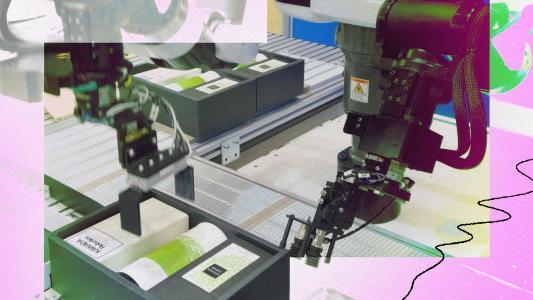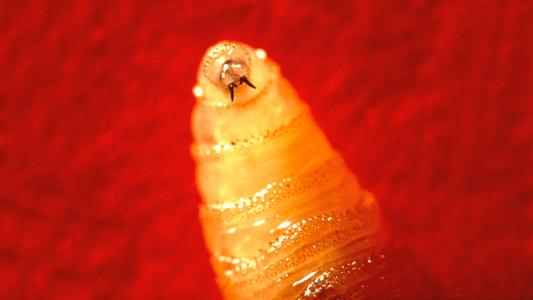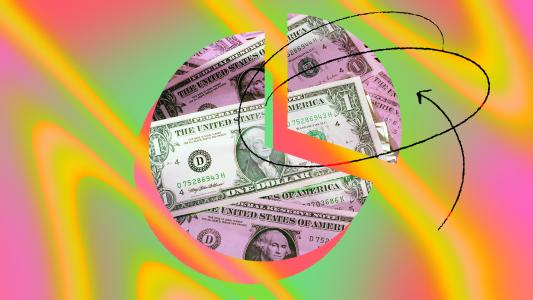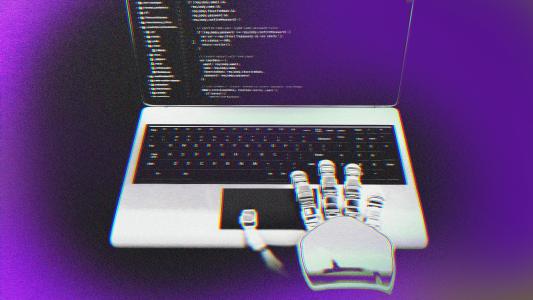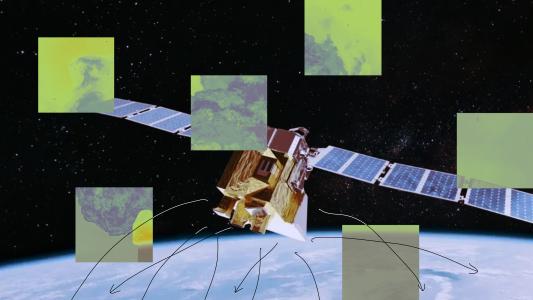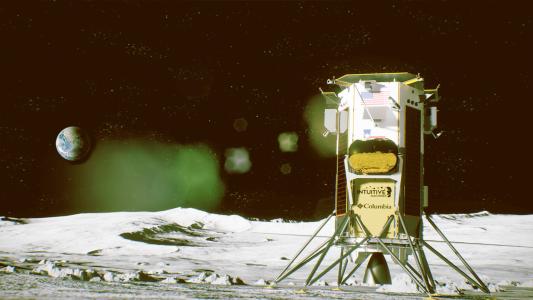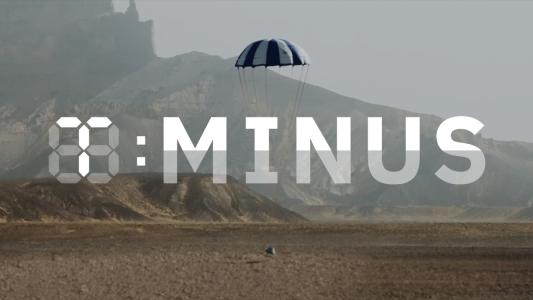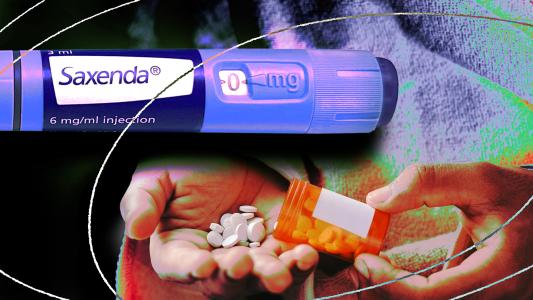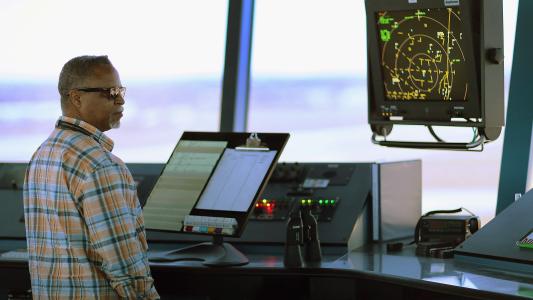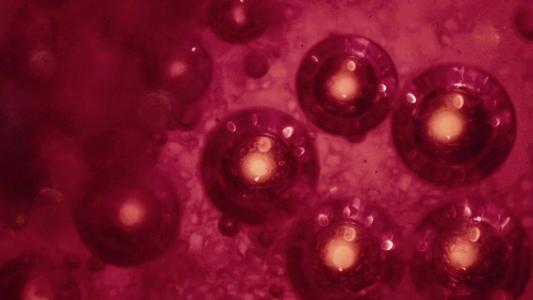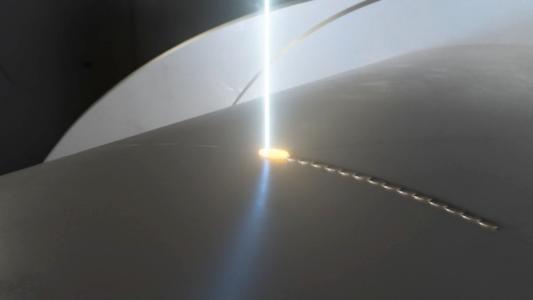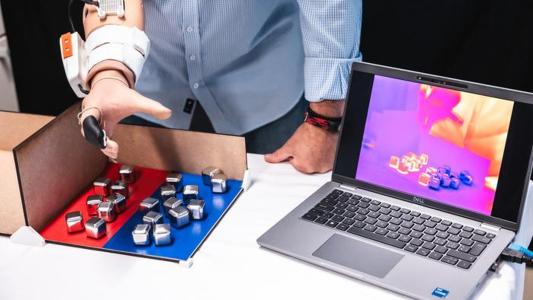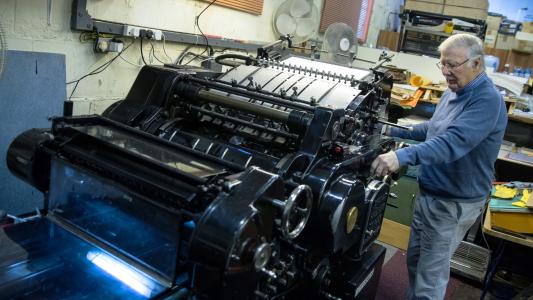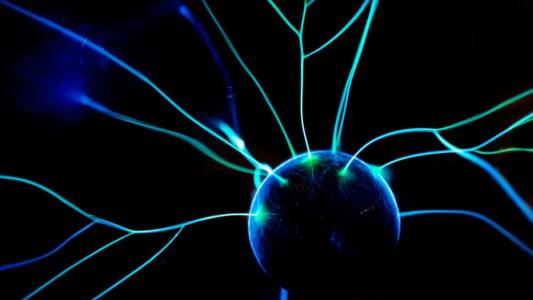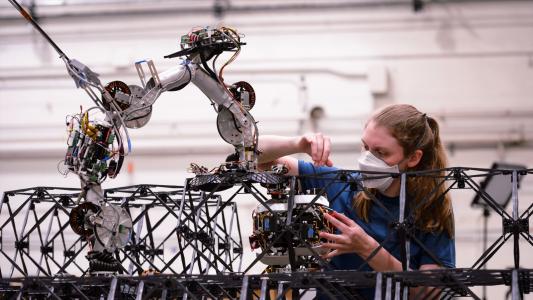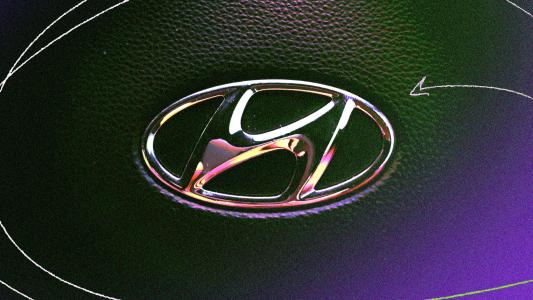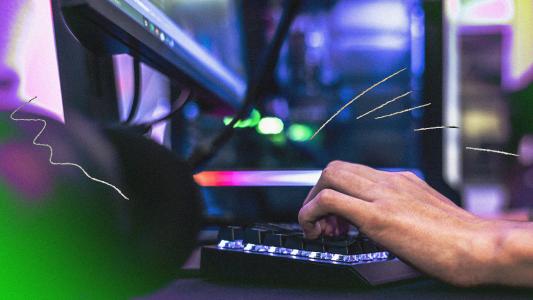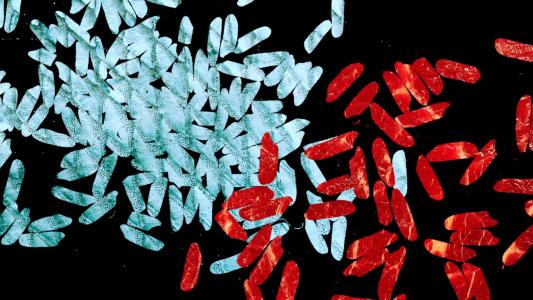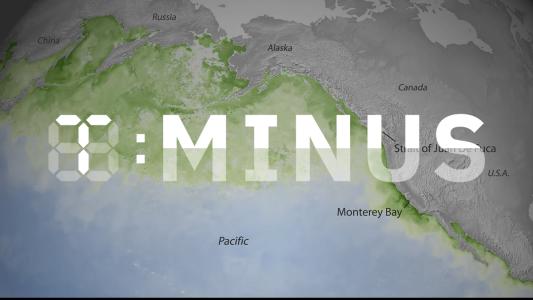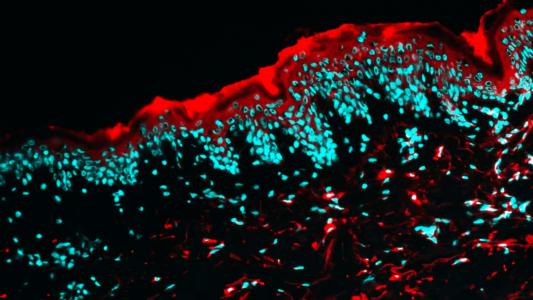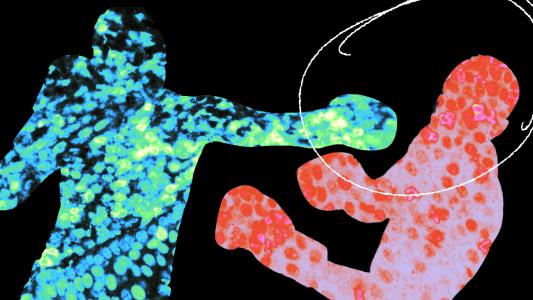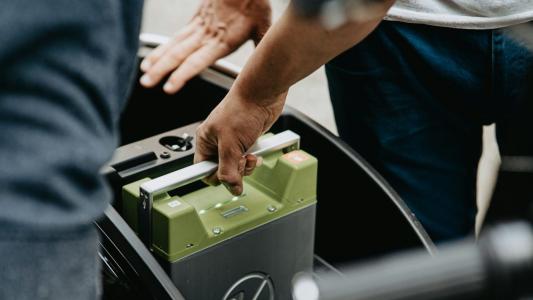How much stress is too much? A psychiatrist explains
Some stress is good for you, but toxic stress, on the other hand, wears down your stress response system in ways that have lasting effects.
T-Minus: Bezos’ space station advances, Boeing’s capsule crews up, and more
Freethink counts down the biggest space news, featuring a new space station, NASA's next astronaut transporter, and more.
Bipedal robot takes a beating, keeps on hiking
LimX Dynamics’s bipedal robot, P1, can keep its footing, even when traversing rough terrain unlike any it’s seen before.
A protein found in human sweat may protect against Lyme disease
Human sweat contains a protein that may protect against Lyme disease, according to a study from MIT and the University of Helsinki.
Pacemaker powered by light eliminates need for batteries and lets the heart to function more naturally
Scientists designed a pacemaker that transforms light into bioelectricity, or heart cell-generated electrical signals.
Would you trust big work-life decisions to an AI coach?
The fast-growing coaching industry is being disrupted by generative AI, which excels at “performance coaching.”
Boom’s supersonic jet flies for the first time
Boom Supersonic just flew its XB-1 supersonic jet for the first time, bringing it a step closer to revitalizing super-fast commercial travel.
Moving trees north to save the forests
Scientists are exploring how to adapt forests for climate change, transitioning them to a warmer future by planting new southern seedlings.
Generative AI tech is dreaming up new antibodies
A new tool for designing antibodies relies on the same kind of tech underpinning DALL-E and other image-generating AIs.
Pill to prevent Lyme disease kills ticks before they can infect you
A pill to prevent Lyme disease quickly killed ticks that bit treated volunteers, suggesting it could slow the spread of tick-borne diseases.
Drugs made in space “cooked real good,” says startup
Varda Space Industries has shared the results of its first mission to manufacture "space drugs" in Earth's orbit.
Soaring insulin costs? Cows could help.
A genetically engineered cow that produce milk containing with human insulin could help cut the cost of the life-saving diabetes med.
First person to get a gene-edited pig kidney is “recovering well” so far
A gene-edited pig kidney has been successfully transplanted into a person for the first time, giving new hope to people with kidney failure.
AI-powered wearable “speaks” for people with vocal cord problems
Bioengineers at UCLA are developing an AI-powered wearable that could make it easier for people with vocal cord problems to talk.
T-Minus: Starship reaches new heights, volunteers discover “active” asteroids, and more
Freethink counts down the biggest space news, featuring Starship's third test flight, a new Mars volcano, and more.
First person with a Neuralink brain implant reveals how he uses it
Elon Musk’s Neuralink has revealed the identity of the first person to receive its brain implant — and the man says it has changed his life.
Reducing pesticide use while increasing effectiveness
AgZen has developed a system for farming that can monitor exactly how much of the sprayed chemicals adheres to plants, in real time.
Humanoid robots are joining the Mercedes-Benz workforce
German automaker Mercedes-Benz is deploying Apptronik’s Apollo robots at a manufacturing plant in Hungary.
Autonomous auto racing promises safer driverless cars on the road
Autonomous racing is a testbed where competition spurs innovation and AI-controlled cars chart a course toward safer autonomous vehicles.
Google’s AI can create a video game based on a napkin drawing
Named Genie, the AI can create a short video games from a single image. It could one day create a wide range of interactive environments.
Startup is building a giant sand battery in Finland
A massive sand battery will help a Finnish town end its reliance on oil for heating, aiding the transition to a clean energy future.
The brief history of artificial intelligence: The world has changed fast – what might be next?
Despite their brief history, computers and AI have fundamentally changed what we see, what we know, and what we do.
Expert explains why a nearly new Boeing 737 MAX 9 door flew off
A 60-pound “door plug” blew out from a nearly new Boeing 737 MAX 9 in flight at 16,000 feet, leaving a gaping hole in the fuselage. Why?
FDA approves weight-loss drug Wegovy to treat heart problems
The FDA has approved the use of Novo Nordisk’s popular weight-loss drug Wegovy to reduce the risk of certain major heart issues.
3D processors could lead to a new era in wireless communication
New 3D processors could unlock more frequencies for wireless communication, unblocking congestion and unleashing new technologies.
How frontotemporal dementia, the syndrome affecting Wendy Williams, changes the brain
In contrast to Alzheimer’s, in which the major initial symptom is memory loss, FTD typically involves changes in behavior.
More water pressure means shorter showers, UK study finds
University students used less water during their showers when they had more water pressure — and they could see a clock.
Startup accelerates progress toward light-speed computing
A new computer chip takes advantage of light’s latency and bandwidth advantages to link processors faster.
How one streamer learned to play video games with only her mind
Perrikaryal uses an EEG to translate her brain activity into game commands, turning her mind into a video game controller.
T-Minus: A new rocket explodes, China looks to Mars, and more
Freethink's weekly countdown of the biggest space news, featuring Space One's flight failure, China's plans to collect rocks on Mars, & more.
Startup unveils “world’s first” complete AI software engineer
Cognition Labs has unveiled Devin, an AI software engineer that can build websites from scratch, debug code, and more.
Trapped in routine? Here’s how to “dishabituate” and rediscover joy
Neuroscientist Tali Sharot shares two ways to "dishabituate" yourself from your routine: take a break or make a change.
SpaceX reaches new heights with Starship’s third test flight
Starship’s third test flight was a bigger success than the previous two, but SpaceX’s rocket wasn’t quite able to stick the landing.
Digital twins are an effective new way to control your metabolism
Digital twins: pioneered at NASA, innovated at Tesla, and now available for your own body, in a smartphone app.
The hunger-boredom paradigm explained by scientists
True hunger builds gradually and can be satisfied by any source of food, but emotional eating (including eating out of boredom) is insatiable.
9 ways AI is helping tackle climate change
Existing AI systems include tools that predict weather, track icebergs, and identify pollution, all of which can help fight climate change.
Implantable solar cells could one day help restore vision
Australian researchers are developing tiny implantable solar cells that could be inserted into the eye to help restore vision.
FDA approves first over-the-counter CGM
The FDA-approved Stelo is the first continuous glucose monitor (CGM) available without a prescription in the US.
How cognition changes before dementia hits
Language-processing difficulties are an indicator of amnestic mild cognitive impairment (aMCI), a risk factor for dementia.
World’s first GM banana approved in Australia
Australian regulators have approved a GM banana modified to resist Panama Disease, a devastating fungal infection.
How our “junk DNA” led to humans being tailless
A CRISPR study out of NYU suggests that junk DNA likely led humans to evolve to be tailless millions of years ago.
Why the US has artificial reefs made from sunken ships and voting machines
Not all underwater reefs are made of coral − there are also artificial reefs made of sunken ships, radio towers, and more.
Clinical trials can save more lives, and faster, with AI
The type of AI powering ChatGPT could help accelerate drug development by matching patients with clinical trials and vice versa.
Serotonin plays a key role in patience and impulse control, research says
Evidence suggests that there is in fact a neurological factor to the brain's ability to control impulses and manage patience.
Cancer vaccine for dogs appears to nearly double survival rate
Yale researchers have developed a cancer vaccine for dogs that appears to increase their 12-month survival rate from 35% to 60%.
3D-printed skin could heal wounds with less scarring
Penn State scientists have 3D-printed skin directly on top of open wounds — an achievement that could improve reconstructive surgery.
Flowers grown floating on polluted waterways can help clean up nutrient runoff and turn a profit
Flowers grown on inexpensive floating platforms can help clean polluted waterways and even make a profit from cut flower sales.
T-Minus: An exploding asteroid, Odie’s final transmission, and more
Freethink's weekly countdown of the biggest space news, featuring a new DART simulation, the end of Odysseus, and more.
How marine permaculture could revolutionize ocean farming
Marine permaculture could contribute to ecosystem restoration and pollution reduction, as well as empower local communities.
Safer skies with self-flying helicopters
Engineers start with an existing helicopter model and add control, sensing, and other software systems to make it autonomous.
Running or yoga can help beat depression, research shows – even if it’s the last thing you feel like
Exercise can be just as impactful in treating depression as therapy, but it matters what type of exercise you do and how you do it.
Elon Musk sues OpenAI and claims it has achieved AGI
Elon Musk is suing OpenAI, claiming it has breached its agreement to develop artificial general intelligence for the benefit of all humanity.
Robots who share your accent are more trusted, study shows
What makes a robot seem competent and trustworthy might be different for different people.
How three students wrote history by winning the Vesuvius Challenge
Thanks to the Vesuvius Challenge, we may be on the verge of the biggest literary discovery of the ancient world in decades.
Animation may be entering a new renaissance. Here’s why.
Popular animated films have been rendered in an increasingly realistic style recently. Here's where animation is heading in the future.
AI solves huge problem holding back fusion power
Princeton researchers have trained an AI to predict and prevent a common problem during nuclear fusion reactions.
How scientists are using sound waves to hack the brain
Korean researchers have developed a new form of ultrasound brain stimulation that could help the brain form new connections.
Doomerism’s “tipping point” and why existentialism isn’t the solution to the climate crisis
We can't afford to lose optimism over averting the worst consequences of this crisis; without it, we're trapped in a response of inaction.
The 3 myths of mindfulness
Mindfulness is hugely popular today, but one philosopher has argued that certain unchecked types of mindfulness are deeply flawed.
T-Minus: An extended asteroid mission, a high-stress moon landing, and more
Freethink's weekly countdown of the biggest space news, featuring SLIM's reawakening, a historic moon landing, and more.
New “spiral” contact lenses let you see up close and far away
New spiral-shaped multifocal lenses bend light in a way that corrects problems seeing up close and far away, even in poor lighting.
How potatoes can keep an eye on nuclear radiation
Plants scientists are researching how fields of genetically modified potato plants could detect radiation.
Watch: Figure’s humanoid robot just learned something new
Robotics startup Figure AI just shared a video showing its humanoid robot completing a fully autonomous “real world task.”
Sam Altman on the future of AI
In the Davos session, "Technology in a Turbulent World," OpenAI CEO Sam Altman explained where he sees AI heading.
How the “powerhouse of the cell” could be cancer’s Achilles heel
Salk Institute researchers have found that rewiring mitochondria could make cancer cells visible to the immune system.
AI for agriculture: How Indian farmers are harvesting innovation
India's farmers combat climate change, pestilence, and financial burdens, with AI-driven initiatives offering transformative solutions.
Fusion startup plans to shoot space junk with lasers
Japanese startup EX-Fusion plans to test whether lasers it is developing for nuclear fusion can remove space junk from orbit.
4 core strategies as AI changes the “meaning of work”
A 2021 study in Germany revealed that automation can have a serious effect on our sense of meaning at work.
CRISPR could eradicate horrific parasite that’s killing cattle
Uruguay is developing a CRISPR gene drive to eradicate the New World screwworm fly, a horrific agricultural pest.
OpenBCI’s new VR headset reacts to your brain and body
OpenBCI is reshaping the relationship between humans and the virtual world with Galea Beta, a headset that measures the body and brain.
Study: one in five workers would sacrifice 16% to 33% of salary to work from home
Would you give up some of your pay check to be able to work from home? People value working from home more than you'd think.
AI startup Magic is building a “superhuman software engineer”
Magic AI is developing an advanced AI software engineer it sees as a milestone along the path to artificial general intelligence (AGI).
Google AI is searching the world for methane leaks from space
Google will provide computing resources to MethaneSAT, a project to identify climate-harming methane leaks from space.
US startup makes history with stressful, landmark moon landing
Intuitive Machines just made history with the first private moon landing — and the mission was a nailbiter.
Students use calculators to do math. Let them use ChatGPT to write.
Researchers tasked teachers with rating hundreds of essays, some written by students and others written by ChatGPT. Here's what they found.
T-Minus: Water discovered on asteroids, first space factory comes home, and more
Freethink's weekly countdown of the biggest space news, featuring the return of Varda's space factory, a Russian space weapon, and more.
Weight-loss drug reduces cravings for opioids in small study
A first-of-its-kind trial found that GLP-1 agonists, a popular kind of weight-loss drug, could help people overcome their opioid cravings.
Aerospace engineer explains why AI can’t replace air traffic controllers
For everyone's safety, humans are likely to remain a necessary central component of air traffic control for a long time to come.
The untapped potential of stem cells in menstrual blood
Stem cells found in menstrual blood could unlock new therapies and diagnostic tests, some researchers argue.
How electron beams could jumpstart the nuclear industry
Electron beam welding could accelerate manufacturing of small modular reactors, helping make nuclear power a part of our clean energy future.
Man feels hot and cold again with prosthetic hand breakthrough
Researchers have built a device that helps users feel temperature through a prosthetic arm. A new study shows it works with high accuracy.
Nvidia’s free tool lets you create your own chatbot right on your PC
Nvidia’s Chat with RTX tool lets you create a custom chatbot that runs locally on your PC and can answer questions about your personal files.
How does studying 500 years of the printing press help us tackle the era of AI?
For around 500 years, the printed word shaped our education and culture. What lessons can we learn from it in the new age of AI?
Evidence that gamma rhythm stimulation can treat neurological disorders is emerging
Researchers survey the therapeutic potential of noninvasive sensory, electrical, or magnetic stimulation of gamma brain rhythms.
NASA tests autonomous space robots for off-world construction
NASA is developing autonomous space robots to build shelters, solar arrays, and more on the moon and Mars.
Mega solar farms could make it rain in deserts
A new study suggests that gigantic solar farms could be used to create “heat islands” that make rain locally.
Astronomers spot 18 black holes gobbling up nearby stars
Scientists have identified 18 new tidal disruption events (TDEs) — when a nearby star is tidally drawn into a black hole and ripped apart.
OpenAI’s text-to-video AI, Sora, is futurism come to life
Sora will let anyone transform their ideas directly into video and the implications are breathtaking.
Why Apple won’t call the Vision Pro “virtual reality”
Apple has forbidden developers from using "VR," "AR," or "MR" to describe their Vision Pro apps. That’s a mistake.
From besting Tetris AI to epic speedruns – inside gaming’s most thrilling feats
Gaming embraces design elements that promote social connection, creativity, a sense of autonomy – and, ultimately, the sheer joy of mastery.
Korean scientists grow beef inside of rice
By growing cow cells inside rice, Korean researchers boosted its protein content by 8%, without substantially increasing its cost.
T-Minus: SpaceX launches PACE, new ocean moon discovered, and more
Freethink's weekly countdown of the biggest space news, featuring the launch of PACE, the discovery of Mimas' ocean, and more.
Bioluminescent plants don’t exist in nature — but you can buy one for $29
Biotech firm Light Bio is selling gene-edited bioluminescent plants that glow green in the dark for just $29.
New pharma supergroup aims to tackle skin disorders
Six biotech companies just merged to form Alys Pharmaceuticals with the goal of developing new treatments for skin disorders.
Why is anxiety spiking in young people but not older adults?
Anxiety among adults 18 to 25 nearly doubled in that time period, but remained stable for adults 50 and older.
Scientists stole a mutation from cancer and used it to kill tumors
Inserting a mutation found in cancer cells into CAR-T cells enabled them to kill a variety of solid tumors in mice.
Focus on right now, not the distant future, to stay motivated and on track to your long-term health goals
Research highlights three effective strategies to help you achieve your goals, including prioritizing short-term consequences.
Cobalt-free batteries could power cars of the future
A new lithium-ion battery that includes a cathode based on organic materials could offer a more sustainable way to power electric cars.

